Manos Katrakis
Nascimento : 1908-08-14, Kastelli Kissamou, Crete, Greece
Morte : 1984-09-02
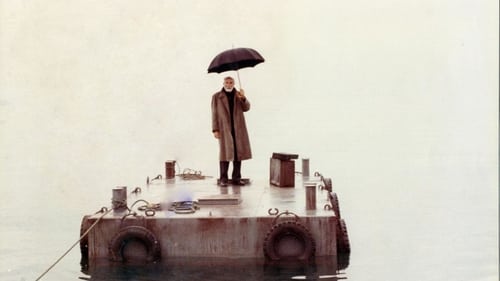
Spyros
Um velho comunista retorna à Grécia depois de 32 anos na União Soviética. No entanto, as coisas não correm bem como ele estava à espera.

Old Man
The years of the storm are Greek historical - dramatic - adventurous film of 1984, directed and directed by Giorgos Tzimas . Starring Michalis Stamatakis Katerina Koutroupida and Menelaos Daflos. Two fighters, cut up in the mountains, after the defeat of the Democratic Army in 1949, are trying to return to their homes.
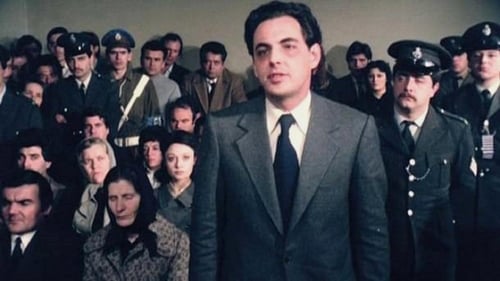
Nikolaos Plastiras
The story of Nikos Belogiannis member of the communist party and officer of Ellas that has come back to Greece only to get arrested, tried for espionage on behalf of Russia and executed.
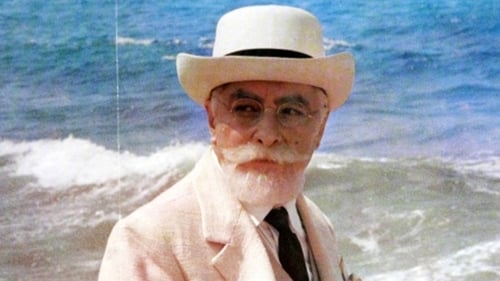
Petros
A biographical film about the great Greek politician Eleftherios Venizelos for the period between 1910-1927. The film highlights his vision of a Greater Greece and refers to important events in Greek history such as the formation of a government by Venizelos after the Goudi movement, his dispute with the King over Greece's stance in the First World War, the temporary his withdrawal from politics after his defeat in the 1920 elections and the Asia Minor disaster. A biography of the former Greek prime minister Eleftherios Venizelos and the recreation of his acts and the political and social climate in Greece from 1910 to 1927.

Melina Mercouri plays Maya, a jet-setting Greek actress who returns to her homeland to undertake the role of Medea. Searching for inspiration and clues as to how a mother could kill the children she loves, Maya discovers Brenda (Ellen Burstyn), a bible-spouting American woman serving time in an Athens prison for that very crime.

Papa-Giannis

Narrator (voice)
An adaptation of one of the greatest greek novellas ('The Murderess' by Alexandros Papadiamantis). Fragkogiannou (Maria Alkaiou), a hard-done by, deranged woman after a life full of hardship, recalls the past by her newborn girl grandchild’s crib. Her mother was a wicked woman and one of her sons was a criminal. Lost in a haze, she strangles the baby as she is concvinced that girls can cause their family only trouble. Later, she lets a little girl drown in a well, while she drowns three other little girls, one of whom is a newborn baby. This is her way of sparing children and parents of the inevitable suffering in life.

Οιδίποδας

Theodoros Kolokotronis
A true story: The trial of judges Polizoidi and Tertseti for disobedience and their triumphant acquittal during the three men regency council, when king Othon of Greece was a minor. The cast of the film was enormous, with almost half of the theatrical people participating.

Fotis' Father
A Middle East allied Force commander, Themis, parachutes in occupied Greece to organize a sabotage in the Meteora region but betrays the Germans and falls into ambush. Before retiring, he calls Fotis, a student who had hidden his house, and urges him to go to Athens and meet an Aristides. Despite the mobilization of the Germans who perform all the hostages they have captured, including his father, Fotis finally arrives in Athens, meets with Aristides and accepts to cooperate with him. With the name of Kostas Alexandrou he catches a room in the Papadima family home, falls in love with their daughter Anna and becomes a "friend" with the German Major Karl Asberg. He accepts the co-operation proposed by Carl - to become his agent - to supposedly trap the guerrillas. But he actually misleads the conquerors about blowing a munitions train. His fate is the same as the fate of every patriot who is sacrificed for his homeland.

Alexandros Viaskos

Kanelos Vasilopoulos
A police officer tries to discover the murderer of his brother, who was a pianist and a morphine. As a member of the Drug Enforcement Department, he tries to identify the head of a drug dealer gang. His unorthodox way of acting upsets his superiors, even though they allow him to continue his investigations. When the gang discovers that he is a police officer, he makes him a drug addict, but he manages to detoxify and eventually capture the gang's brain.

A poor and refined water fisherman, Zafeiris Kassis (Nikos Xanthopoulos), who was invited by the barba - Minas pop singer in Athens, maintains his mother and his sister's widow's family. In the center where he sings, Renata, the daughter of the millionaire big publisher Derku and editor of one of his newspapers, is visiting him. At their first meeting, they strongly argue because of a girl's article in the newspaper and his own response. When they happen to meet again in Hydra, where they know better, a strong and mutual feeling develops between them. Renata's father and his environment are opposed to this relationship, while Renata is forced to leave Zafire. But her love for him is unshakable.

Lysias Sekeris
Athens, 1964. A police reporter, Nikos Avgeris, has the journalistic mission to cover a suspected car crash that killed a senior state official. His investigation reveals that the victim was responsible for the financial control of a large building organization and that he was being used to cover the illegality of his administration. This organization had abused much of the money earmarked for the erection of homes for homeless war wounded, and is now very much annoyed by the revelations of Augustus. This is why they try to close his mouth, but he is not hurt and continues the investigation. Augustus reaches the end, revealing everything and clearing up yet another dirty affair.

Lykourgos Venetis

Horst Richter
Angelos Kreouzis (Nikos Kourkoulos) survives a shipwreck and reveals to the committee in charge that the disaster was not an accident, but the consequence of the neglect of the ship by those responsible.

Argyris
After the death of her kind stepfather and Pontian Greek refugee, a young woman arrives in Athens to track down her biological father who is missing since the blood-drenched Pontic genocide in Asia Minor. Will she ever find him?

Giannis

A wealthy young man with a bright future, Andreas, finishes the Polytechnic at a time when the lovely Stella, the girl she is in love with, starts her studies at the University. He wants to get married, but his father has other plans in mind: to send him for postgraduate studies in Paris. Stella does not want to stand in the way of Andrea's career and future, and she sacrifices her own happiness to become that great architect. She suffers from their separation, but her pain softens her job: a psychologist, specialized in the treatment of delayed children, will dedicate her soul and body to her work. A few years later, thanks to Lina, who is surprised to learn that he is the daughter of Andreas, he will rejoin him and finally find happiness.

General Gerakaris

Alekos Valiris
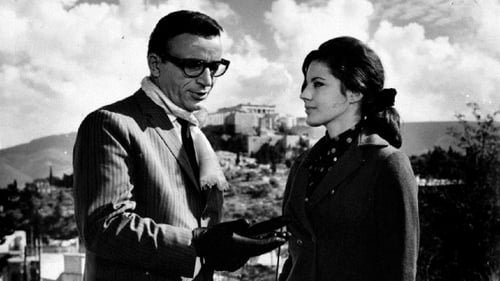
Athanasios Daoutis
The adoptive son of a lawyer, with the help of a girl who loves him, healed from amnesia, which was caused because of a childhood trauma. He remembers that he has a twin brother. When he discovers, he sees with surprise that his brother has become a successful lawyer, but who will draw him to court, accusing him of burglary.
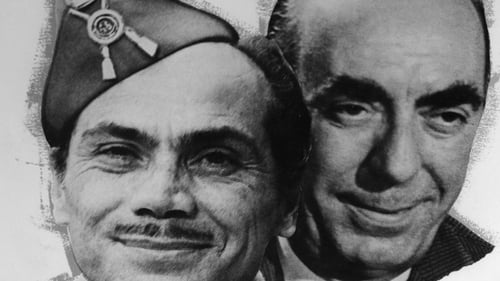
A quartet of short stories about Greece during the various occupations during World War 2

Mose Aron

After a harsh childhood, orphan Jane Eyre is hired by Edward Rochester, the brooding lord of a mysterious manor house, to care for his young daughter.

Μάνος Σαρρής

Major General Dareios
Athens, shortly before the outbreak of World War II and an Army General Staff official, Niki (Jenny Carezis), is charged with channeling confidential documents to an Italian agent. The category is right. The girl was blackmailing herself with the life of her brother studying in Italy. She does not make any effort to defend herself and is indifferent if she is sentenced to death, but she accepts the cooperative proposal proposed by General Darius, that is to continue to channel secret documents to the Italians, but now they are deliberately made to deceive the enemy . The whole case is also involved with a captain, Theodorou, who is in love with Niki. Theodorou is arrested for misappropriation of documents and goes through a military court where he is sentenced to demolition and death. Certainly, his execution was fictitious, and on the day Greek troops enter Korça, he is shown alive to Niki, which does not hide her surprise.

Mr. Razis

Tasos Patridis
Intent on hurting herself, a beautiful but desperate daughter crashes her car on the day of her mother's wedding, unfolding a tragic tale of love, deception, and murder behind the closed doors of a wealthy family.

Elefterios Dimitropoulos
A new, ambitious prosecutor undertakes a great trial for a murder trial but things get very confused. Instead of the accused, slowly proved that culprit is actually the wife of itself.

The last days of the historic siege of Messolonghi. The film depicts the whole situation that prevailed in the city after the Turkish siege for many months, and tells the courageous effort of its defenders who are attempting a heroic and desperate exodus.

Father Hormovas
Vassilis Georgiades directed this tense drama, one of the final Greek films made before the 1967 coup which led to restrictions on film content. The plot concerns struggles between peasants and the wealthy estate-owners over division of land in the early part of the 20th century. This battle is contrasted with the rivalry of two brothers over a woman's affections. The performances are somewhat lacking, but Georgiades' assured direction and presentation of a little-known chapter of Greek history resulted in an Oscar nomination as "Best Foreign Film."

Nikolas

Mr. Delipetrou

Mikes Papadimas
Targeted for her beauty and pilloried by members of her own village, a poor and orphaned young woman flees from her humble but hostile birthplace to seek refuge in the bosom of the hectic city of Athens. Can love put an end to her ordeals?


One of filmmaker and expatriate writer Adonis Kyrou's best-known quotes translates roughly as "I urge you: Learn to look at 'bad' films, they are so often sublime." The same could be said of Kyrou's own directorial work in Greece before the advent of the 1967 dictatorship forced him to flee to Paris. This confused mess, the first cinematic attempt at portraying the Greek resistance in WWII, caused quite a stink upon release, as much for its surprising style (recalling that of Bertolt Brecht) as for its subject matter. Reaction to its screening as part of the 1966 Cannes Film Festival's International Critic's Week was heated and divisive, proving Kyrou's later statement by rising above its own inherent silliness to achieve a sort of rarefied critical status. It's bad drama that nonetheless succeeds by dint of audacity more than quality (a comment which could apply equally to the work of many exploitation directors like Jean Rollin whom Kyrou later so lovingly profiled).


Priest
We are in 1942, in the middle of the German Occupation, on an island opposite the coast of Asia Minor, where a mature woman, Katerina Rodeli, cares for a wounded resistance fighter named Kanaris. In her memory, there are images of the past, the panic of the Asia Minor catastrophe and especially the entrance of the tsets in her village. There she lost her three-year-old son, Konstantin, whom he never ceased to look for. However, the village's mackerel maharagrite handed it over to the Germans and, in the face of the danger, they were arrested along with the wounded and a boat ride on the Turkish coast to find themselves immediately enclosed in a refugee camp. His commander is a tough second lieutenant, Osen, who is bought by the English consulate of Izmir to transfer the fugitives to Egypt.

Professor Victor Kastriotis
Karl (Petros Fyssoun) is a German officer who falls for a young Greek woman of Jewish ancestry in this symbolic war drama. He wants to marry Lisa (Elli Fotiou), but he dutifully turns her over to the Gestapo when she reveals she is Jewish. Karl learns of the Nazi atrocities when he is transferred to the Eastern Front. At the end of the war, a dejected Karl returns to Athens in hopes of being reunited with the woman whom he willingly turned over to authorities and who ended up in a concentration camp. The premise of the story is hard to take because Lisa was well aware of Karl's rampant anti-Semitic beliefs when her uncle overheard Karl making a speech.
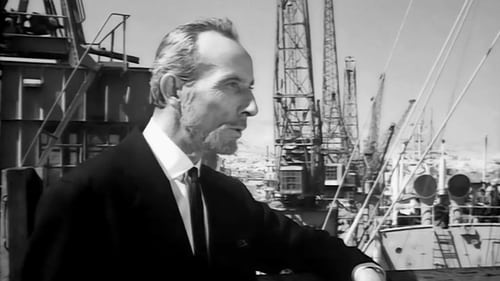
Nikolas Maroukis, ship captain
The inextricably intertwined stories of five sex workers who live in a brothel at Pireas harbor.

Pontikakis
The adventures of a very beautiful young Cretan, who because of the beauty of the suffering of all women who want to conquer.

Father Vasileios
Andreas, nephew of the abbot of the Monastery of Dionysios, who died eight years previously, arrives at Agion Oros (Mount Athos) with a team of smugglers of antiquities, with the intention of stealing a gold cross set with precious gems, known as the Cross of Alexander the Great. He earns the trust of the meek and hospitable monks. However, a Jewish girl, Anna - whom, while still a baby during the war, her father had entrusted to the care of the hermit Vasileios - continues to pretend she is a young monk. She manages gradually to discover the entire scheme and acts to foil their plot.

Alekos

The Tutor
Living in exile after the death of their father, the grown children of a murdered and usurped king converge to exact eye-for-an-eye revenge.

Bournokos
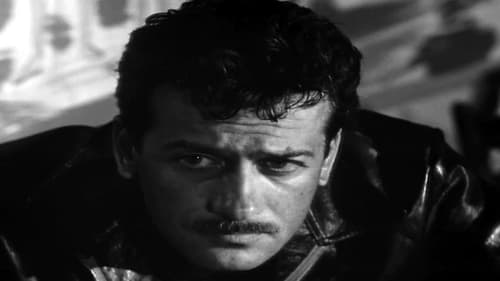
Nekroforas
The stories of poor people living in a neighborhood in Athens and their difficulties.

Creon
In Thebes in ancient Greece, King Oedipus kills his father and marries his mother Jocasta, having two sons - Eteocles and Polyneices - and two daughters - Ismene and Antigone. King Oedipus dies a beggar in the exile after gouging out his own eye, and Eteocle agrees to reign in Thebes in alternating years with Polynices. However, he refuses to resign after the first year and Polynieces raises an army and attacks Thebes, and they kill each other. The ruler of Thebes Creon decrees that Eleocles should have an honorable burial while the body of the traitor Polyneices should be left on the battlefield to be eaten by the jackals and vultures. However, Antigone, who was betrothed to Creon's surviving son Haemon, defies Creon's orders and buries her brother. When Creon is reported of the attitude of Antigone, he sentences her to be placed in a tomb alive. Antigone hangs herself in the tomb and Haemon tries to kill his father first and then he kills himself with his sword...
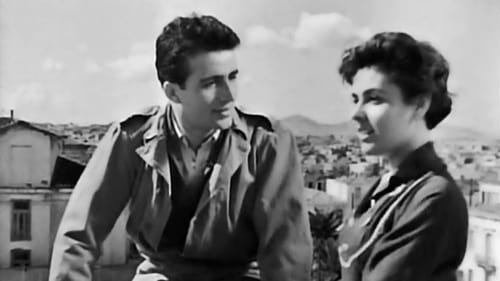
observer - narrator
A look at poverty in post-war Athens. Kosmas, a young man living in the slums, constantly tries to make ends meet, hoping for a better day. Because of debts, he gets tangled up in smuggling. His morals are tested and he tries to find a way out.

Alekos
Young Antinoos is on vacation on an island where he meets a seductive woman, Eva, who is having a miserable time with her middle-aged husband, Alekos. Eva is attracted to Antinoos, who is her missing part, but at the same time, she feels guilty and tries to suppress her passion.

Ραΐδης
Captain Alexis Komninos manages to escape from the Germans, with the help of the abbot Prudence arrives in Middle East headquarters in Cairo. Assumes office and connected to the beautiful Maria, from which does not hide that he is married. Meanwhile, his wife Anna and Synesios captured by the Germans on charges that reported in Cairo information for the departure of a German convoy. Komninos, along with a team of commandos, landed in occupied Greece and liberate the imprisoned patriots apart from the Synesius already performed. But while trying to escape, Anna was fatally injured. After the war, Komninos apologizes by Governor Raidis whom he considers lover of his wife, and with Mary, visited the grave of Anna.

Liakos
It is the third film in a row of the type that much later on was called "fustanella (Greek kilt)", following Gkolfo by Bachatoris (1914) and Astero by Gaziadis (1929). It is based on the successful theatrical play (rhyming pastoral romance) by Dimitrios Koromilas, who draws his inspiration from a poem by Giannis Zalokostas "I fell in love with a shepherdess". The setting is Greece, a rural country in the middle of the 19th century. A landlord, Mitros, gives Kroustallo a golden cross as a gift to show her his tender feelings. He doesn't know, however, that she is already in love with Liakos, a destitute young shepherd to whom Mitros owes his life - in the past he had saved him from drowning in the river. The cross around the neck of the shepherdess causes fights between the two men, while Mitros asks Kroustallo's hand from her mother, Mrs. Stathaina, who had been his childhood love.

































